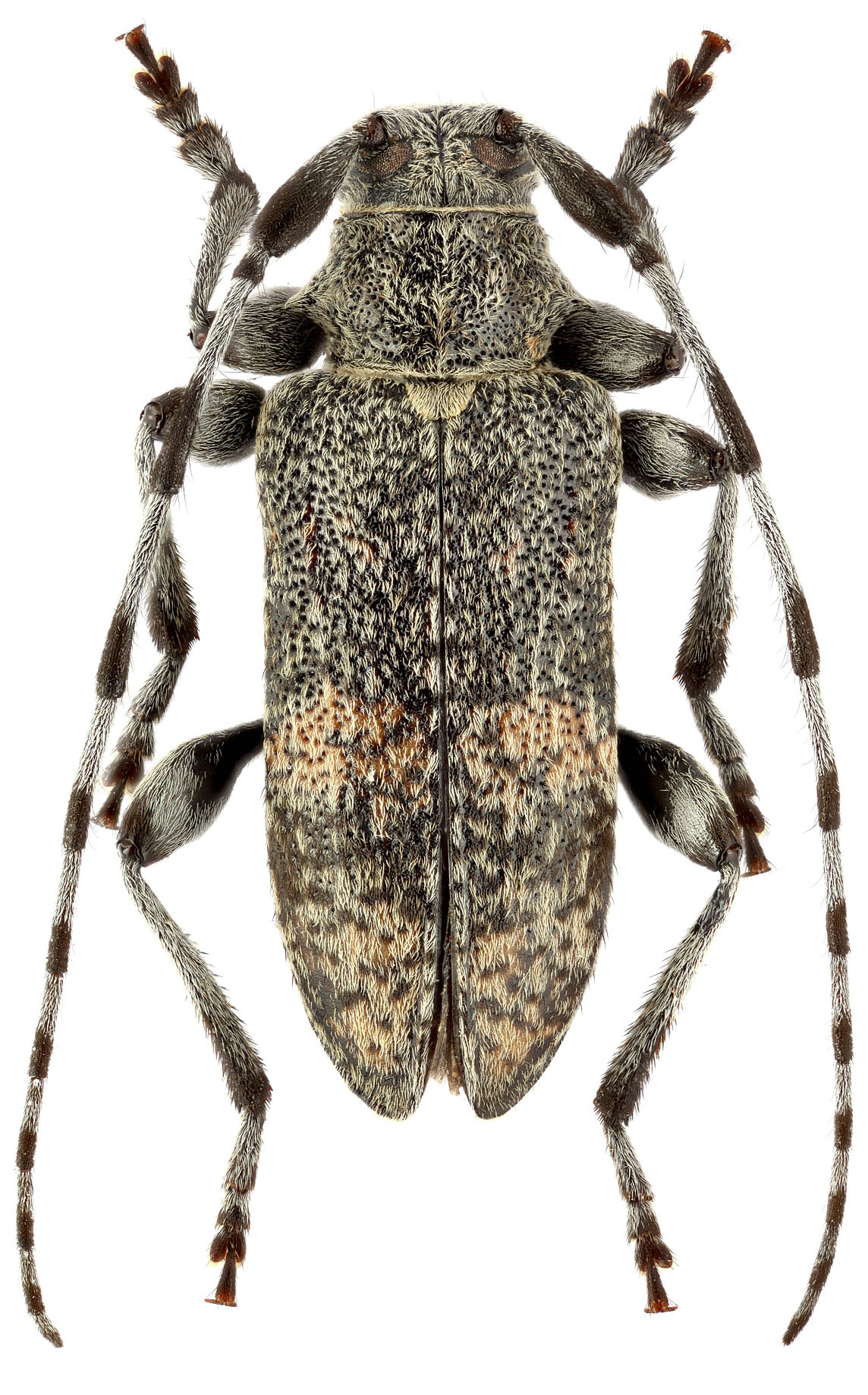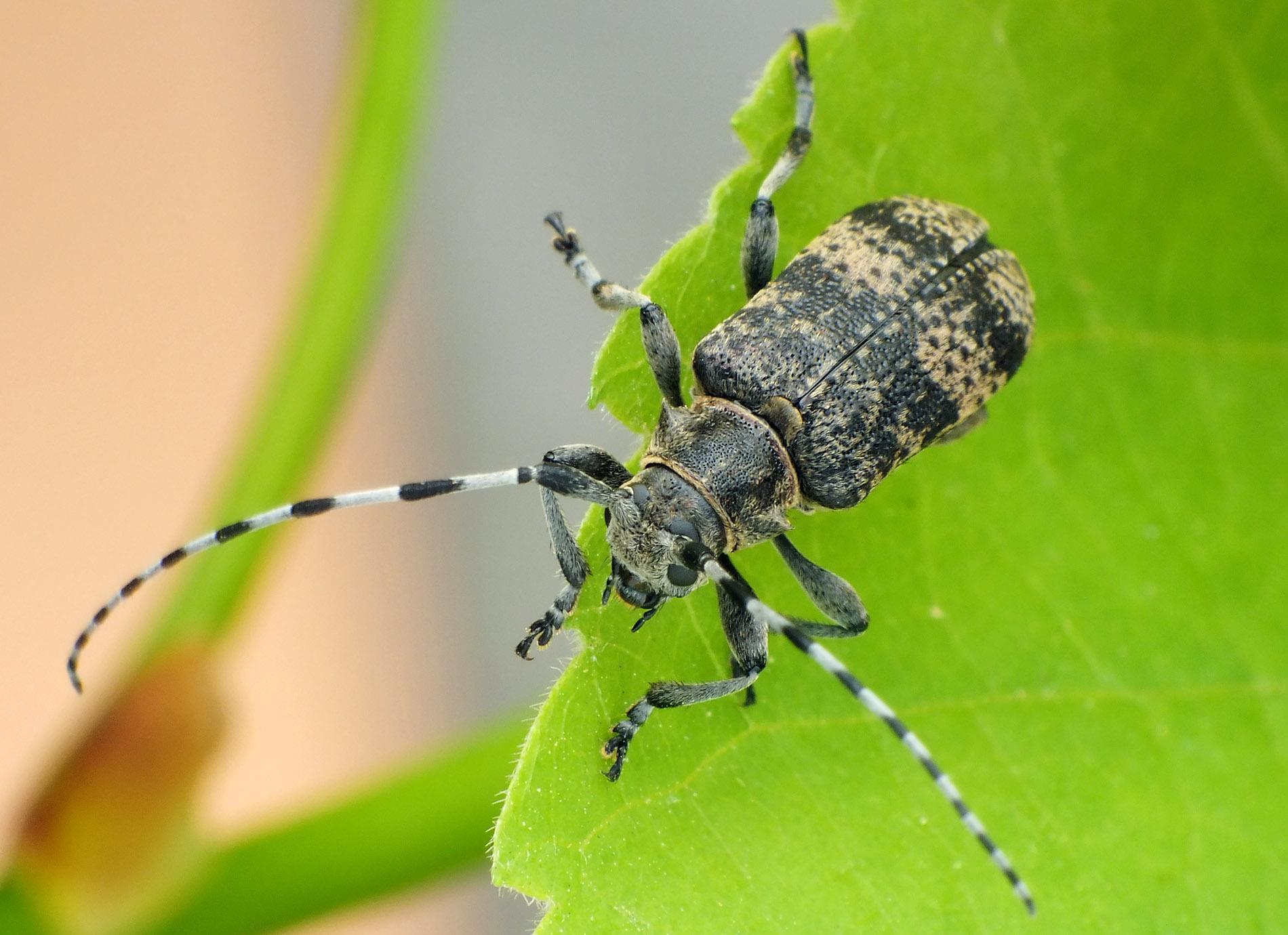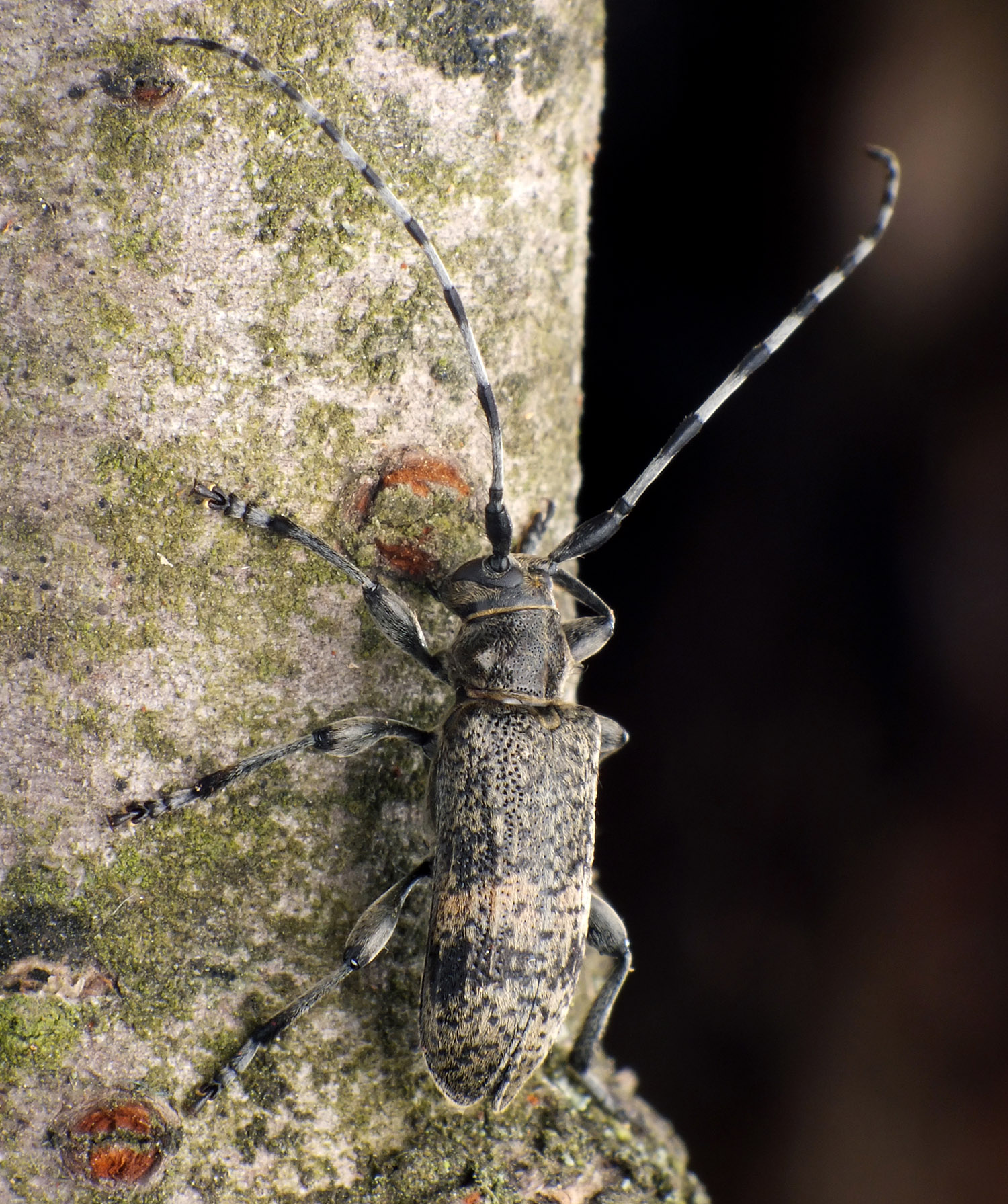Oplosia cinerea, a species common in North, Central and East Europe, has been first described as Cerambyx fennicus from Finnland by Gustaf Paykull in 1800 [✧].
However, due to pre-occupation, the species name cinereus used by Étienne Mulsant in his description (Exocentrus cinereus) in 1839 is valid [▽].
Larvae of Oplosia cinerea were recorded from a variety of deciduos trees. In Central Europe, however, the species prefers lime (Tilia). Oplosia cinerea develops in old decaying and very
moist branches of dead hosts, and usually in the ones lying on the ground. The larvae feed subcortically and partially in the bark. Later they create a shallow pupal cell in the moist substrate and
secure themselves there with a wad of fibrous frass resembling that of Saperda species [❖].
| Body length: | 8 - 13 mm |
| Life cycle: | 1 - 2 years |
| Adults in: | May - July |
| Host plant: | polyphagous in deciduous trees, but strongly prefers Tilia spp. |
| Distribution: | Europe, Russia, Caucasus |
The depicted mounted male was collected by A.Shapovalov in Maloye Churayevo (Малое Чураево) village environs (Kuvandyksky urban okrug, Orenburg region, Volga federal district. Russia) on June 14-15, 2009.
The living beetles were photographed by Tamás Németh in Hungary in May 2014.
[✧]
Paykull G.:
Fauna Suecica; Insecta. (Coleoptera).
Johannes F. Edman, Uppsala, Coleoptera 3: 1-459, 1800.
[download  ]
]
[▽]
Mulsant É.:
Histoire Naturelle des Coléoptères de France. Longicornes.
Paris, Maison: vii-xii + 304pp., 1839.
[download  ]
]
[❖]
Sláma M.E.F.:
Tesaříkovití – Cerambycidae České republiky a Slovenské republiky / Cerambycidae of the Czech Republic and Slovak Republic.
Milan Sláma private printing, Krhanice, 383pp [pages 287-288], 1998 [ISBN: 80-238-2627-1].
[download  ]
]




